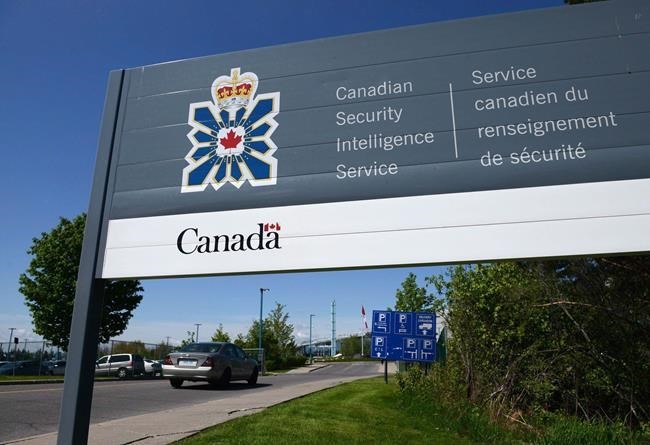OTTAWA — Canada's intelligence service sometimes strayed from the law when trying to disrupt threats from hostile foreign states in the 2019 election campaign, the national spy watchdog has found.
In a newly released report, the National Security and Intelligence Review Agency sheds fresh light on the Canadian Security Intelligence Service's use of powers, ushered in six years ago, to actively counter threats.
Such measures could involve CSIS altering websites, blocking communications or financial transactions, and interfering with tools or devices.
The review agency looked at the topical issue of threat-reduction measures, approved in the context of the 2019 federal election, that were intended to ward off threats to Canada's democratic institutions.
In the run-up to the election, Canada's cyberspy agency, the Communications Security Establishment, warned there would be some kind of online foreign interference.
The CSE cautioned the meddling was unlikely to be on the scale of Russian interference against the 2016 U.S. presidential election.
But it said Canada could expect foreign adversaries to try to sway voters by focusing on polarizing social and political issues, promoting the popularity of one party over another, or trying to shape the public statements and policy choices of a candidate.
In its report, the review agency says most of the threat-reduction measures taken by CSIS during the period satisfied requirements spelled out in legislation governing the spy service.
It concluded, however, that in an unspecified number of cases the actions ran afoul of the CSIS Act because there was no clear link between a person implicated under the measure and the actual threat.
The review agency's classified report was presented to the government in February but a version with sensitive material deleted was made public only this week. Any details of specific disruption operations were excised from the document.
For all of the threat-reduction measures studied, the review agency found CSIS had met obligations, set out in a ministerial direction, to consult government partners and complete an assessment of the operational, political, foreign relation and legal risks of each measure.
The review agency's legal assessment of the measures looked at requirements in the CSIS Act that the spy service have "reasonable grounds to believe that a particular activity constitutes a threat to the security of Canada" and that the measure be "reasonable and proportional in the circumstances."
Most of the measures "satisfied the requirements of the CSIS Act," the report says.
But in a "limited number of cases" the spy service's inclusion of people "without a rational link" to the threat meant the measures "were not 'reasonable and proportional' as required under the CSIS Act."
One type of measure — no description was provided — entailed third parties acting on CSIS's behalf. Such a relationship would require CSIS to fully consider the Charter of Rights and Freedoms implications of its measures, and could require the spy service to obtain warrants before taking certain measures, the report says.
Overall, while CSIS use of threat reduction "remains limited," the intelligence service has been applying the powers to the full spectrum of national security threats, the report notes.
The review agency made recommendations including development of an accountability framework for compliance with legal advice on threat-reduction measures, such as documenting when and why such advice was not followed.
In a written response included with the report, CSIS says the Justice Department provides advice to ensure measures remain lawful and respect the rights of Canadians, adding the spy service "diligently applies these principles and guidance."
CSIS spokesman John Townsend said Friday the service welcomes the review body's contributions "in the spirit of continuous improvement."
"CSIS will always champion a sophisticated discussion on national security issues, especially those grounded in a Canadian context," he said.
"In today’s dynamic threat environment, government, civil society and the private sector must work together to protect our national interests."
This report by The Canadian Press was first published Nov. 26, 2021.
Jim Bronskill, The Canadian Press



